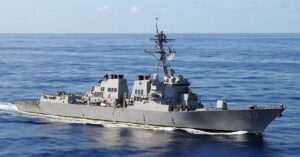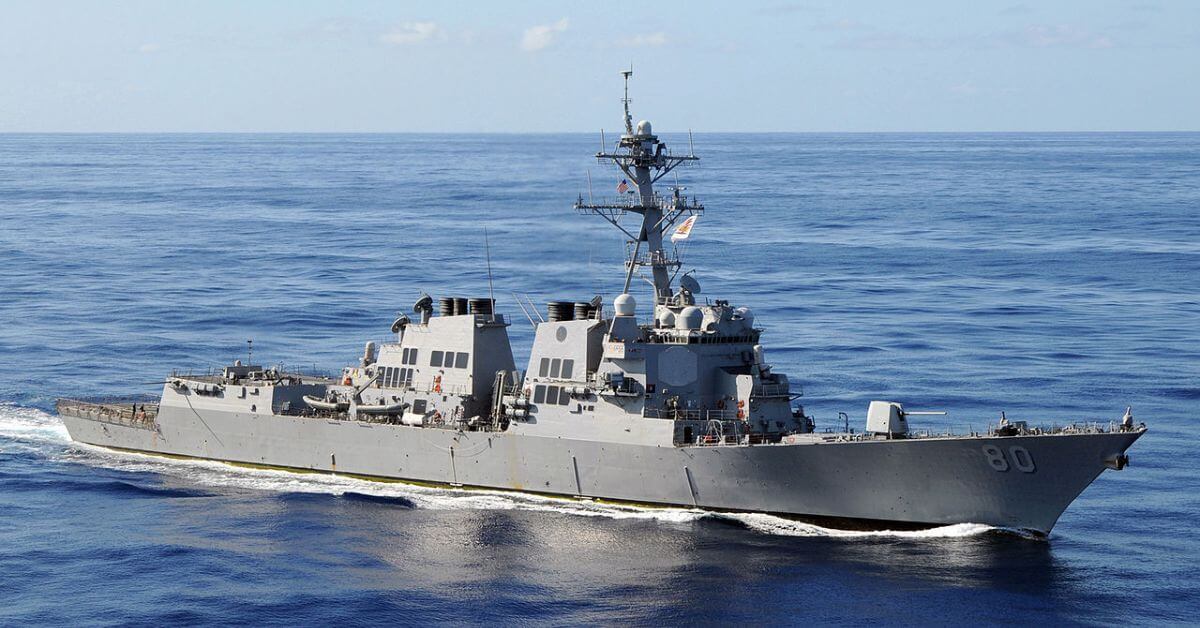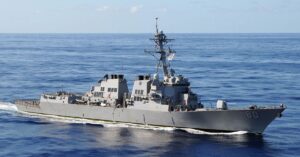
Smuggler Sentenced To 40 Years in Prison After Shipping Weapons From Iran To Houthis
October 18, 2025
India’s Cochin Shipyard Launches Three Technologically Advanced Vessels
October 18, 2025

The U.S. Navy is reportedly holding two survivors aboard one of its warships after retrieving them from a suspected drug-trafficking vessel that was struck by American forces in the Caribbean on Thursday.
The attack, which killed two others on board, marks the first known instance in which the U.S. military has detained survivors following a strike in its ongoing anti-narcotics campaign near Venezuela.
According to U.S. officials, the vessel targeted in the strike is believed to have been a semi-submersible craft, a submarine-like vessel often used by traffickers to evade detection while transporting narcotics.
One of the sources said the vessel sank after the strike, while five others confirmed that a U.S. military helicopter was deployed to rescue the survivors and airlift them to the Navy ship where they are currently being held.
President Donald Trump confirmed the strike on Friday, describing it as the sixth known attack on a vessel allegedly involved in drug trafficking operations. He claimed that the targeted submarine had been “built specifically for the transportation of massive amounts of drugs,” adding that those on board were “not an innocent group of people.”
Officials have said that this was the first strike to leave survivors, as previous operations had resulted in the total destruction of suspected drug boats. According to administration statements, earlier U.S. strikes in the region killed 27 people, which has raised concerns from legal experts and Democratic lawmakers questioning whether such actions comply with the laws of war.
Earlier in the week, Trump disclosed that he had authorised the Central Intelligence Agency to conduct covert operations inside Venezuela.
Following the incident, Venezuela’s ambassador to the United Nations, Samuel Moncada, reportedly sent a letter to the UN Security Council requesting a determination that the U.S. strikes off its coast were illegal, and urging the Council to reaffirm Venezuela’s sovereignty.
In a further development, the Pentagon announced that counter-narcotics operations in the region would no longer be led by the Miami-based U.S. Southern Command, which traditionally oversees missions in Latin America. Instead, the operations will now be headed by the II Marine Expeditionary Force, a rapid-deployment unit based at Camp Lejeune, North Carolina.
References: Reuters, CNN
Source: Maritime Shipping News


